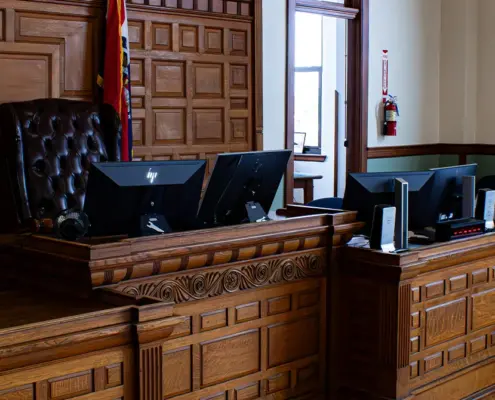
Should I Appeal to the Superior Court or the Commonwealth Court?
Appellate AttorneysIf you have lost a trial in Pennsylvania, or had a case dismissed on summary judgment or as a part of preliminary objections and you want to appeal, how do you know which court to appeal to? We have two intermediate appellate courts in Pennsylvania,…

Working Public Policy Arguments into your Appellate Brief
Appellate AttorneysIf you’re appealing a case in Pennsylvania to the Superior Court, the Commonwealth Court, or the Supreme Court of Pennsylvania, you should consider how public policy considerations impact your appeal. Like most litigants, you care about the…

Preventing Waiver on Appeal
Appellate AttorneysAs you prepare your appeal in the Superior Court or Commonwealth Court in Pennsylvania, how do you avoid waiver or forfeiture? Here are three common mistakes that people make that cause waiver and forfeiture.
First: Be sure to include citations…

Defending an Appeal to the Superior Court
Appellate AttorneysCongratulations! You won your case before the Court of Common Pleas, and you’re relieved that your long lawsuit has come to an end. But then you get the bad news: the other side has appealed to the Pennsylvania Superior Court. Can your hard-won…

Can my sentencing be deferred while my case is on appeal?
Appellate Attorneys, Criminal LawIf you’ve lost a criminal case at trial and you’re looking to bring an appeal, will the court consider deferring your sentence until the appeal is decided? Under Pennsylvania law, there are several factors that a court will consider in making…

When should I move to make an unpublished opinion published?
Appellate AttorneysIf you’ve brought a successful appeal in the Superior Court or the Commonwealth Court, and the decision is released as unpublished, should you move to make it published? Does it matter for your case whether this case is going to be a precedent…

What is a Concurring or Dissenting Opinion?
Appellate Attorneys
It’s relatively frequent in the news that you hear about a “concurrence” or “dissent.” What does it mean when a Justice of the Supreme Court of the United States or a Judge of another Court issues a concurring or dissenting opinion?…

What is an amicus brief?
Appellate AttorneysAn amicus brief is a legal document filed with a court by an organization or group that is not a formal party to an action, requesting a particular outcome. An outside group can petition the court for permission to be recognized as an amicus…
